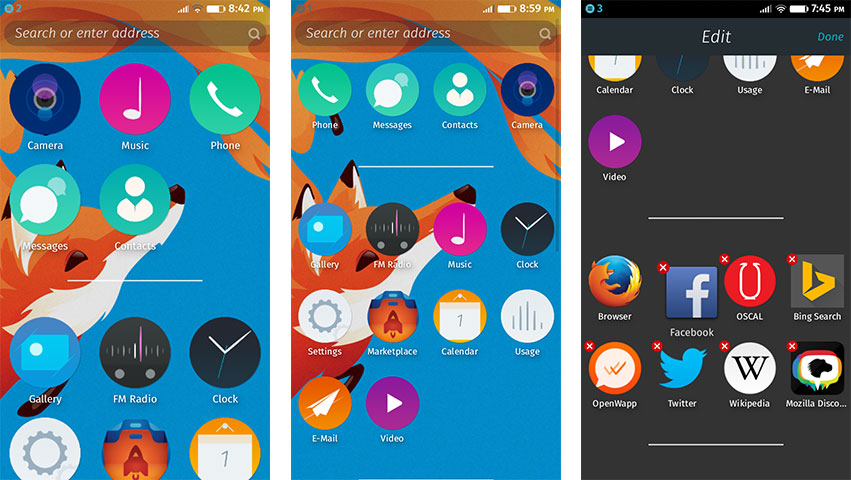FirefoxOS v2.0 is possibly the easiest-to-use smartphone operating system I’ve experienced
My father’s always been a fairly early adopter of technology. He happily uses a device that wirelessly connects his golf club to his iPhone, for example. My mother? Not so much. Until this weekend she was still sporting an old Nokia feature phone. She kind of wanted a smartphone, but didn’t want the complexity, nor the expense.
Meanwhile, I’ve been using a Geeksphone Peak smartphone recently. It’s not the latest FirefoxOS device (that would be the Flame), but it’s a significant step up from last year’s Geeksphone Keon. I’ve been using the pre-release channel of v2.0 of FirefoxOS, which is a departure from previous versions. Whereas they were similar in look and feel to Android, FirefoxOS v2.0 is different.
Every weekend, we go over to my parents’ house for Sunday lunch. Yesterday, we got talking about technology and I showed my parents my FirefoxOS device. One thing led to another, and (because all of my stuff was backed up) I wiped the phone, transferred my mother’s contacts, and swapped SIM cards. My wife gave her some tips, and then we drove off into the sunset with her Nokia phone.
I don’t think I would have felt comfortable leaving her without her old phone to revert back to if I was giving her an Android device or iPhone. There’s something so simple yet so powerful about Firefox v2.0; I’m happy to use it myself and hand it over to other, more technophobic people. Yes, I understand that I’m a Mozilla employee fully invested in the mission, but those who know me understand I also don’t say positive things about specific technologies without good reason.
According to the roadmap, today’s the day that FirefoxOS v2.0 becomes feature complete. There’s some really nice features in there too, like WebRTC (imagine Skype/FaceTime, but just using web technologies), edge gestures (something I really missed from my old Nokia N9) and Sync. If you haven’t had a chance to try one out, I’d take a look at FirefoxOS device over the coming months. The operating system is currently being tested on tablets and TVs and means, of course, smart devices without the usual vendor lock-in.
Note: the screenshots are from this post as I forgot to take some before wiping the phone and lending it to my mother!


